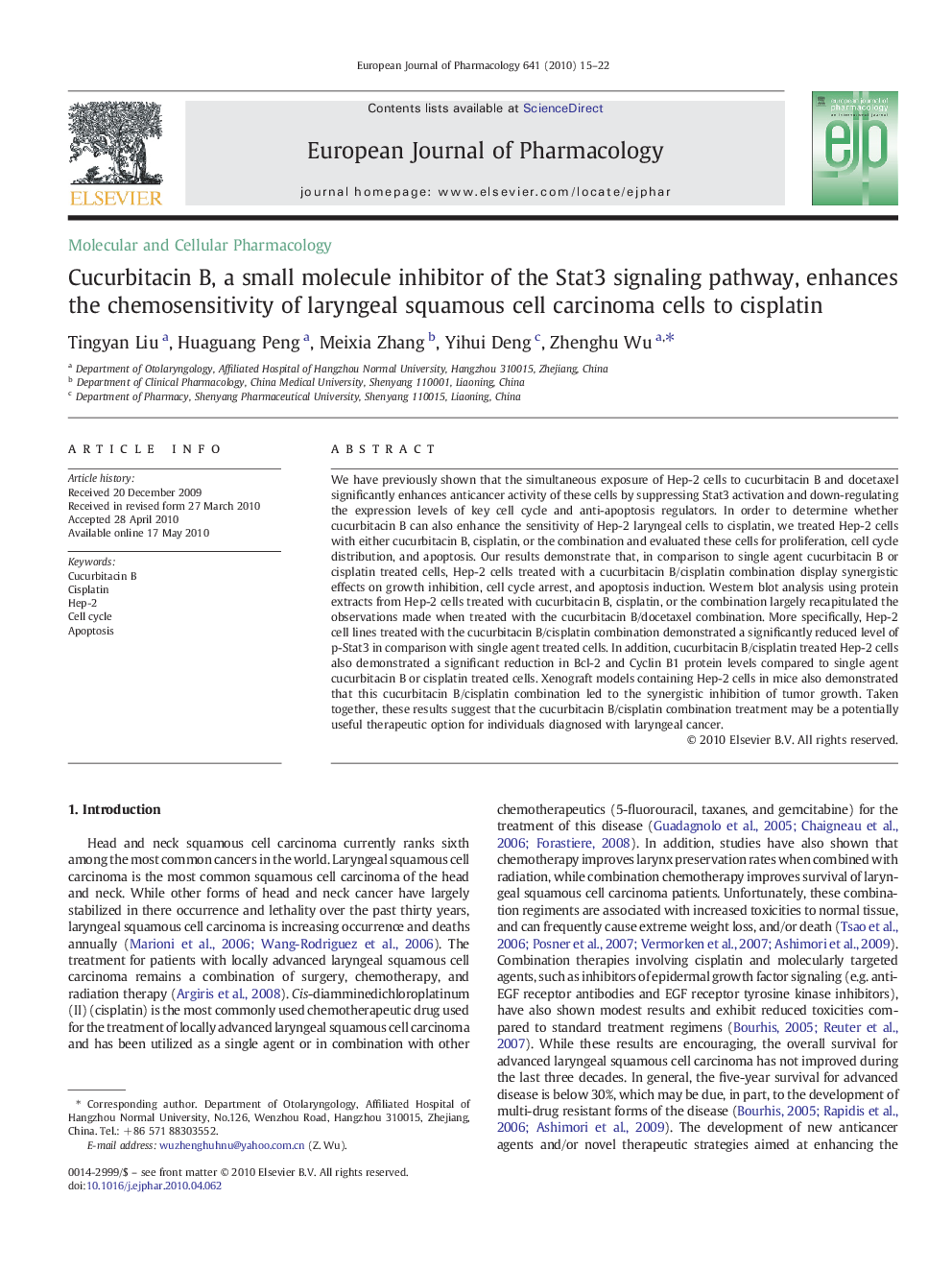| Article ID | Journal | Published Year | Pages | File Type |
|---|---|---|---|---|
| 2533453 | European Journal of Pharmacology | 2010 | 8 Pages |
We have previously shown that the simultaneous exposure of Hep-2 cells to cucurbitacin B and docetaxel significantly enhances anticancer activity of these cells by suppressing Stat3 activation and down-regulating the expression levels of key cell cycle and anti-apoptosis regulators. In order to determine whether cucurbitacin B can also enhance the sensitivity of Hep-2 laryngeal cells to cisplatin, we treated Hep-2 cells with either cucurbitacin B, cisplatin, or the combination and evaluated these cells for proliferation, cell cycle distribution, and apoptosis. Our results demonstrate that, in comparison to single agent cucurbitacin B or cisplatin treated cells, Hep-2 cells treated with a cucurbitacin B/cisplatin combination display synergistic effects on growth inhibition, cell cycle arrest, and apoptosis induction. Western blot analysis using protein extracts from Hep-2 cells treated with cucurbitacin B, cisplatin, or the combination largely recapitulated the observations made when treated with the cucurbitacin B/docetaxel combination. More specifically, Hep-2 cell lines treated with the cucurbitacin B/cisplatin combination demonstrated a significantly reduced level of p-Stat3 in comparison with single agent treated cells. In addition, cucurbitacin B/cisplatin treated Hep-2 cells also demonstrated a significant reduction in Bcl-2 and Cyclin B1 protein levels compared to single agent cucurbitacin B or cisplatin treated cells. Xenograft models containing Hep-2 cells in mice also demonstrated that this cucurbitacin B/cisplatin combination led to the synergistic inhibition of tumor growth. Taken together, these results suggest that the cucurbitacin B/cisplatin combination treatment may be a potentially useful therapeutic option for individuals diagnosed with laryngeal cancer.
